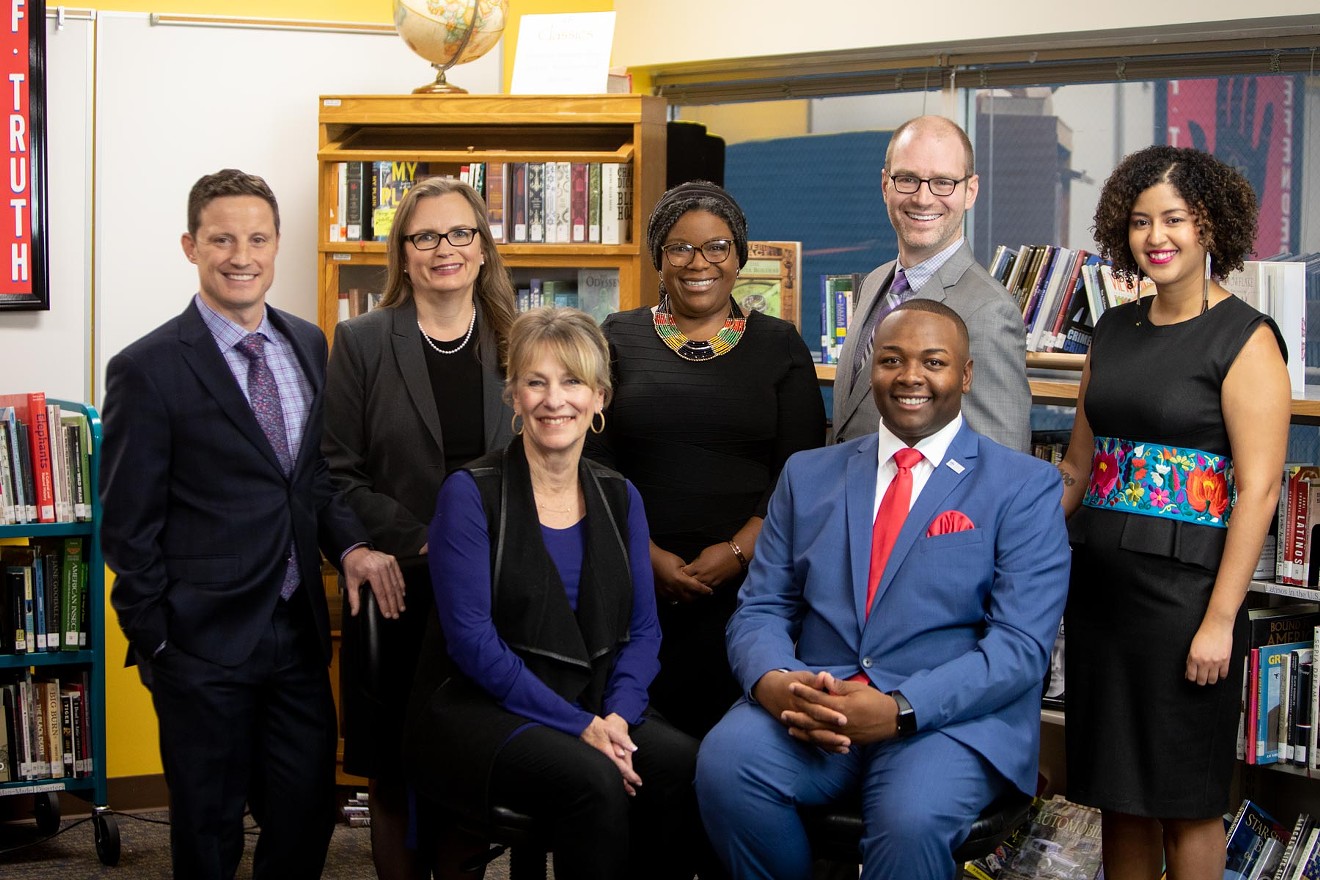When we inaugurated new board members this month, the tally of community organizers on the Denver Public Schools Board of Education ticked up. Jennifer Bacon and Angela Cobían have powerful records of service as community organizers, and newly elected Tay Anderson, who has been organizing since he was a student at Manual High School, makes three. DPS has at times struggled to authentically respond to the voices of the families it serves. As a community organizer myself, I see this shift on the board as a moment to fundamentally re-orient the way DPS serves families by grounding the work in community organizing principles.
Here are five powerful principles I’d love to see adopted by the new DPS board:
Democratize the knowledge.
Community organizing is fundamentally about shifting who has power within our system and putting the power with those who have been furthest from it. One of the key ways we can do that is to democratize the knowledge: make sure families and students are brought into the process of decision-making from start to finish. I was excited when I heard Director Anderson share his aspirations to move board meetings to Saturdays to increase accessibility to participating in the decisions of the board.
No permanent friends, no permanent enemies.
We’ve just had a cycle of contentious elections, but community organizing is focused on achieving the win —which, for DPS, must be on providing an excellent education. This board can model coming together on shared values and driving the whole community — including folks that were on different teams during the election —toward solutions that serve all students.
Community is not a monolith.
This board, led by community organizers, must ensure that multiple perspectives are heard in decision-making processes. This means not just making policy for folks who can make it to board meetings, but going out into the communities they serve and seeking diverse perspectives. Under Superintendent Cordova’s leadership, we’ve seen the Family and Community Engagement Department begin to customize its approach to the various populations in the regions of Denver we serve, which is an exciting first step, but there is much more a board led by community organizers can do to ensure that when decisions are made, we’ve heard from students, teachers and parents.
Bring those closest to the pain to the decision-making table.
Denver is facing a declining enrollment crisis where inaction could lead to each new crop of students getting worse and worse services and programs as the district tries to spread shrinking resources over the same number of schools. This is a moment where the district, under this new board’s leadership, can boldly craft both process and policy that brings those closest to the pain — families in the heart of the gentrifying communities — to the table and acknowledge that we can’t do things the way they’ve been done before, but instead put families in the position to lead the process of creating a vision for what a new school plan for that community might look like.
Don’t stop listening.
As we come to the end of the Denver 2020 plan, it may be tempting for this board to say those are the right goals and vision, especially after having engaged in an expansive listening process around the hiring of our superintendent last year. I would push this board to keep listening as individuals, but also to push on policy and practice within the district to encourage listening at every level. As the board considers the next chapter for this district, this is their opportunity to say, “This is what we think we’ve heard, did we get it right?” and then build a plan based on the answers they receive from the diverse voices of this city.
Community engagement can’t be a branch of the work DPS does, but instead must be a collective systemic shift in how the district approaches the work. If these three community organizers-turned-boardmembers can come together and leverage their collective power on shared values, I am hopeful they can bring all board members along in crafting policy, plans and, ultimately, action that match these values — action our community very much deserves.
Danielle DeSantis is the State Organizing Director for Stand for Children Colorado. She previously served as the Managing Director of Outreach for Educators for Excellence and was a ninth- and tenth-grade English Learner Teacher.
Westword occasionally publishes op-eds on issues of importance to the Denver community. Have one you'd like to share? Email [email protected].
[
{
"name": "Air - MediumRectangle - Inline Content - Mobile Display Size",
"component": "12017618",
"insertPoint": "2",
"requiredCountToDisplay": "2"
},{
"name": "Editor Picks",
"component": "17242653",
"insertPoint": "4",
"requiredCountToDisplay": "1"
},{
"name": "Inline Links",
"component": "18838239",
"insertPoint": "8th",
"startingPoint": 8,
"requiredCountToDisplay": "7",
"maxInsertions": 25
},{
"name": "Air - MediumRectangle - Combo - Inline Content",
"component": "17261320",
"insertPoint": "8th",
"startingPoint": 8,
"requiredCountToDisplay": "7",
"maxInsertions": 25
},{
"name": "Inline Links",
"component": "18838239",
"insertPoint": "8th",
"startingPoint": 12,
"requiredCountToDisplay": "11",
"maxInsertions": 25
},{
"name": "Air - Leaderboard Tower - Combo - Inline Content",
"component": "17261321",
"insertPoint": "8th",
"startingPoint": 12,
"requiredCountToDisplay": "11",
"maxInsertions": 25
}
]











